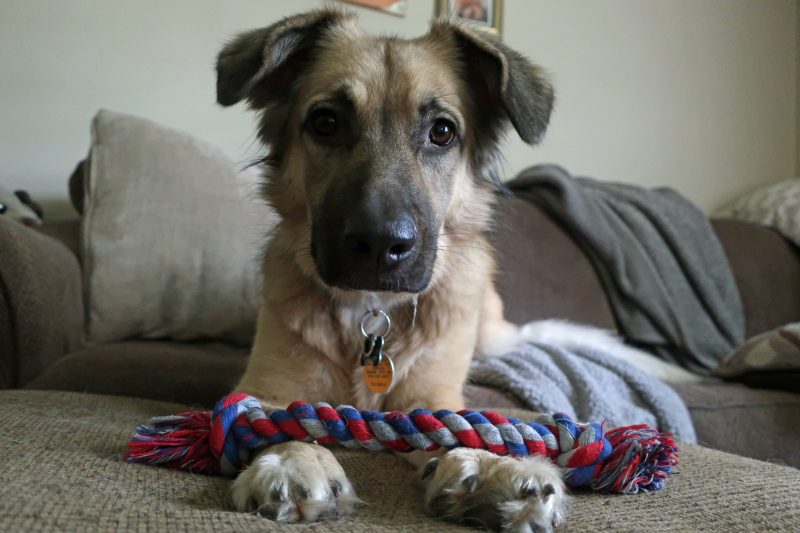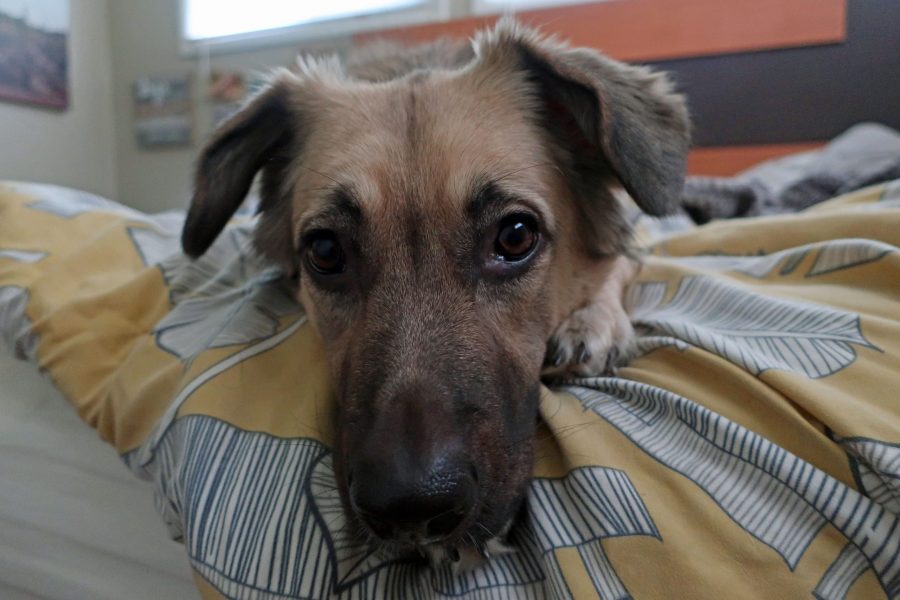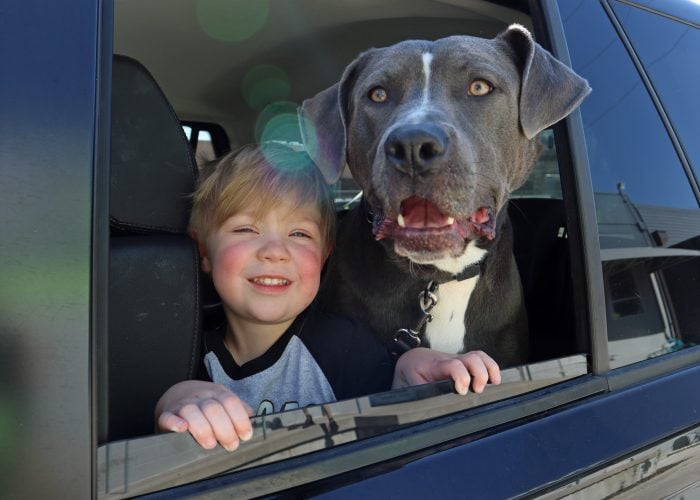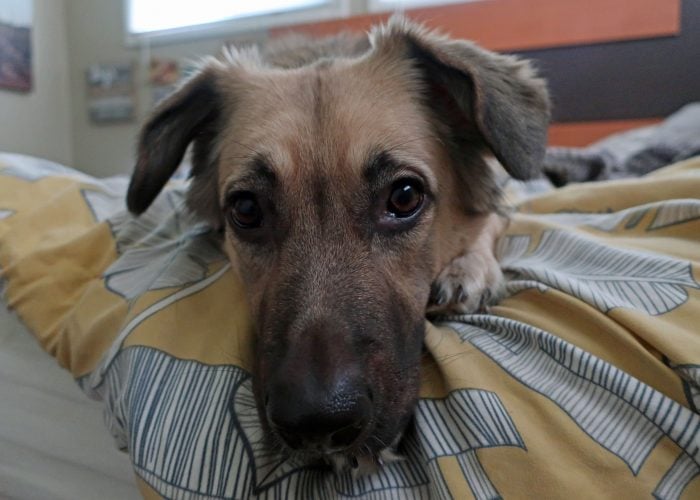Let’s get straight to the point. More pets go missing on July 4 than any other time of the year, and we want to do everything possible in our power to prevent that from happening to your fur baby.
Dogs and cats alike can be fearful of loud, abrupt noises because it’s their natural instinct. The same can go for humans with PTSD, anxiety or other medical conditions, making this bustling holiday dreadful for more beings than one might think.
But there’s no need to worry because there are preventative measures that you can take if you have a pet with noise phobia, mild or severe. And trust me. If you feel like you’ve hit every dead end trying to find ways to alleviate their anxiety, I’ve been there. My dog Maeby makes it almost impossible to leave the house on this day (and even the weeks surrounding this holiday because people are constantly lighting off fireworks), but she gets better at dealing with her anxiety and growing more confident when I use these helpful tips, all verified by our very own Dr. Meredith Cruse.
Let’s get started.
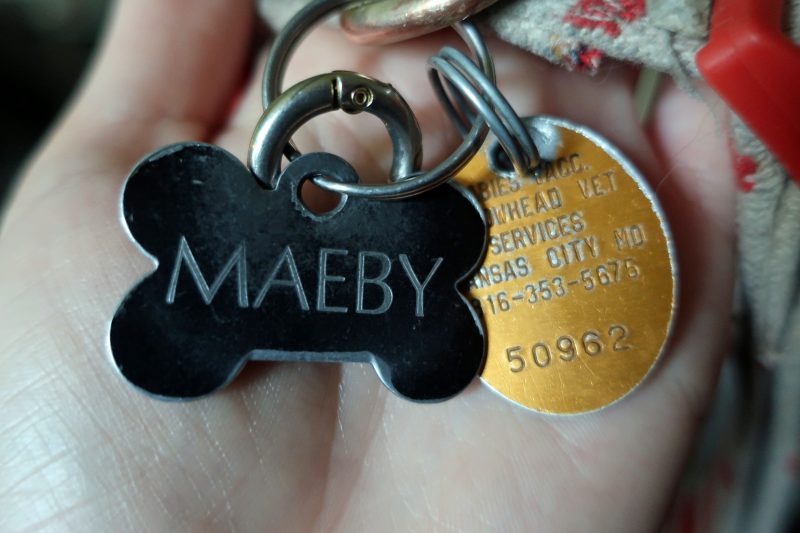
IDENTIFICATION
Be sure your pet is wearing its collar and tags with up-to-date info. However, collars can slip off, so if you’d like to be extra cautious, you can write your pet’s name and your phone number on their stomach with a pet-friendly, permanent marker. In the case that your pet gets lost, whoever finds your fur baby will have your information in some form so that they can contact you.
Microchip, microchip, microchip. This is one of the best ways to ensure your pet gets home to you safely. If your pet already has a microchip, make sure the registration is updated with your most recent contact information; you can do so on found.org for free. But if your pet doesn’t have one, please consider getting one before the holiday arrives. It is a service we provide, and you can schedule an appointment with us online.
Take a current photo of your pet. This will also be helpful in the case you need to make lost pet flyers or share their image on social media and/or any other neighborhood apps to help bring your fur baby back home.
COMFORT
Leave your pet at home. If you have plans to go out, that’s fine, but the safest place for your pet is at home. You may feel guilty and not want to leave them at home by themselves, but avoid the urge of taking them with you. An unfamiliar scene could possibly stress them out even more.
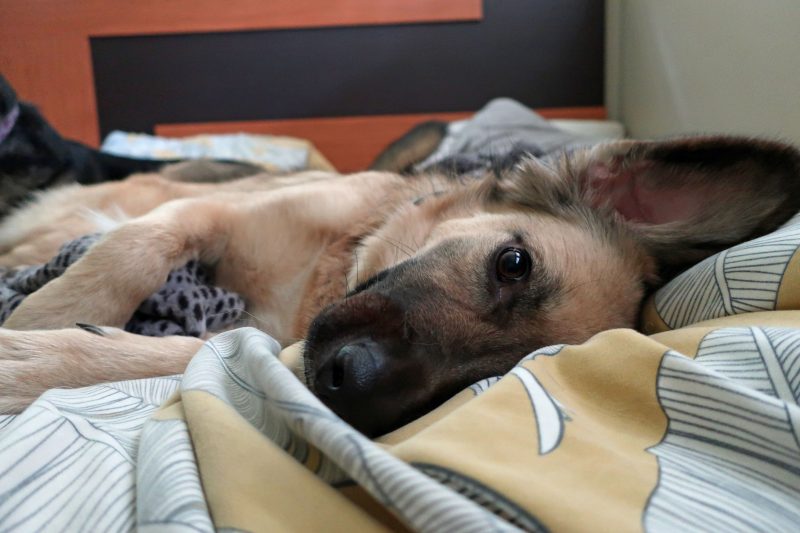
Give them a quiet, safe place where they can rest. Whatever place in your house that makes them the most comfortable is ideal, whether that means your bedroom, their kennel or someone else. Giving them familiar items like toys, blankets or clothing with your scent will help to ease their anxiety, as well.
Put on some background noise. Playing music or turning on the TV at a reasonable volume, of course, helps to drown out the sound of the fireworks and give them a sense of regularity.
Lead by example. Don’t react too strongly to their nervous actions. Pets, dogs especially, feed off our energy, and acting as if everything is normal will help them do the same. Instead, help them build their confidence – which is just a nicer way of saying don’t baby them too much – by rewarding their desired behavior. And please don’t punish them for being scared because they won’t understand what they did “wrong.”
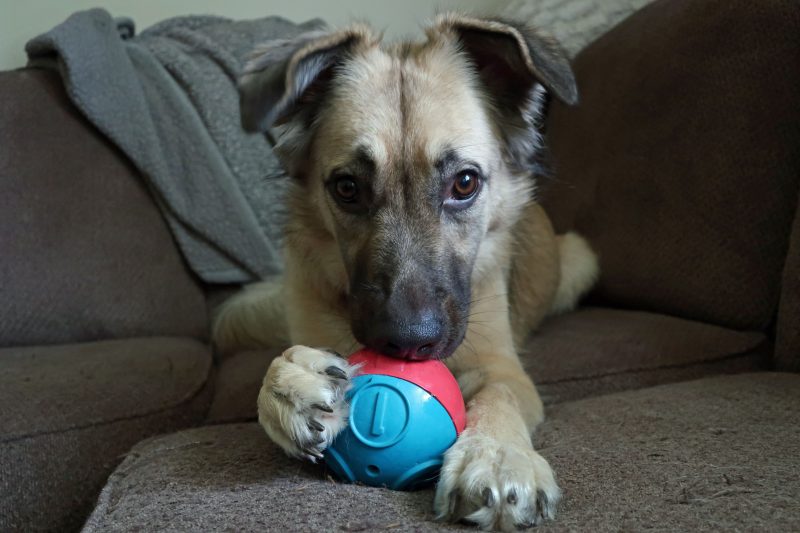
Food puzzles or new toys will go a long way. The excitement of a new toy will distract them for some time, and food puzzles or kongs will keep their minds busy and shift their focus onto one thing versus the auditory chaos that’s going on around them.
Wear them out beforehand. Making sure your pet gets plenty of exercise earlier on in the day will help to tire them out and be able to relax and/or sleep better when the fireworks start going crazy later in the day.
And finally, keep them inside as much as possible.
OUTDOORS
First and foremost, keep all fireworks away from pets. They can be very dangerous if ingested. The same goes for anything fire related in general: punks, matches, lighters, candles, grills and tiki torches. Fire and fur don’t mix. And glow sticks aren’t good news either, for cats especially.
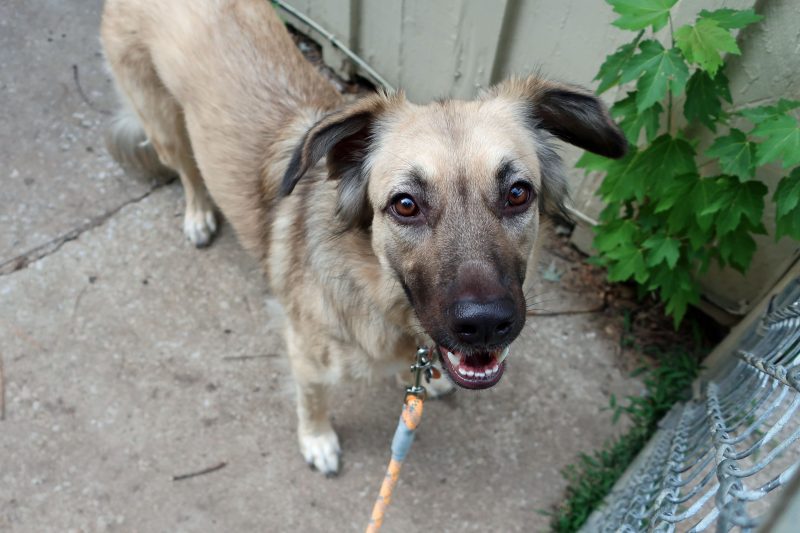
Make sure your fence is secure. We don’t want your pet to escape if it hears a big boom while outside. You may still even want to consider having them on a leash in your fenced yard to be extra cautious. Also, accompany them every time they’re outside; you being out of their sight could add to their anxiety.
Be cautious of hot weather. It’s a lot harder for pets to bear the heat compared to humans. Limit their time outside, keep them hydrated and make sure they have a cool place to rest. For more information on keeping pets safe during warm weather, visit our other blog post.
No human food or table scraps, no matter how cute they are. Many foods that we eat can cause them to have an upset stomach or lead to much worse medical complications.
Do not apply any insect repellent or sunscreen that aren’t not specifically designed for pets. The chemicals in these products aren’t safe for your furry friend.
Check your yard for any trash or unused fireworks after the celebration. We don’t want them getting into anything that could put them at risk if consumed.
FINAL TIPS
If you will be out of town, create an emergency plan and share these tips with your pet sitter. Also consult with your veterinarian before July 4 if you know your pet has severe anxiety and may need further medical treatment. If you see a lost pet, please call animal control or get it to a safe place if you can until the holiday passes. We hope everyone stays safe and has fun on the Fourth.
